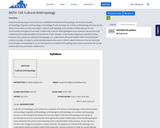
The syllabus for ANTH 120: Cultural Anthropology, taught at Mary Baldwin University by Dr. Abigail Wightman, PhD.
- Subject:
- Anthropology
- Material Type:
- Syllabus
- Author:
- Abigail Wightman
- Date Added:
- 03/17/2020

The syllabus for ANTH 120: Cultural Anthropology, taught at Mary Baldwin University by Dr. Abigail Wightman, PhD.
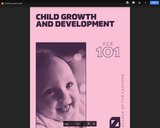
Welcome to Child Growth and Development. This text is a presentation of how and why children grow, develop, and learn. We will look at how we change physically over time from conception through adolescence. We examine cognitive change, or how our ability to think and remember changes over the first 20 years or so of life. And we will look at how our emotions, psychological state, and social relationships change throughout childhood and adolescence.
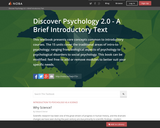
This textbook presents core concepts common to introductory courses. The 15 units cover the traditional areas of intro-to-psychology; ranging from biological aspects of psychology to psychological disorders to social psychology. This book can be modified: feel free to add or remove modules to better suit your specific needs.
This book includes a comprehensive instructor's manual, PowerPoint presentations, a test bank, reading anticipation guides, and adaptive student quizzes.
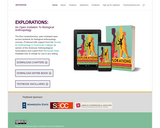
Chapter 1: Introduction to Biological Anthropology
Chapter Two: Evolution
Chapter 3: Introduction to Molecular Biology and Genetics
Chapter 4: Forces of Evolution
Chapter 5: Meet the Living Primates
Chapter 6: Primate Ecology and Behavior
Chapter 7: Understanding the Fossil Context
Chapter 8: Primate Evolution
Chapter 9: Early Hominins
Chapter 10: Early Members of the Genus Homo
Chapter 11: Archaic Homo
Chapter 12: Modern Homo sapiens
Chapter 13: Race and Human Variation
Chapter 14: Human Variation: An Adaptive Significance Approach
Chapter 15: Bioarchaeology and Forensic Anthropology
Chapter 16: Contemporary Topics: Human Biology and Health
Appendix A: Osteology
Appendix B: Primate Conservation
Appendix C: Human Behavioral Ecology
Reviews available here: https://open.umn.edu/opentextbooks/textbooks/explorations-an-open-invitation-to-biological-anthropology-shook
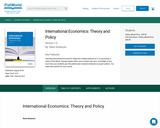
International Economics: Theory and Policy is built on Steve Suranovic’s belief that students need to learn the theory and models to understand how economics works and how economists understand the world. And, that these ideas are accessible to most students if they are explained thoroughly.
So, if you are looking for an International Economics text that will prepare your PhD students while promoting serious comprehension for the non-economics major, Steve Suranovic’s International Economics: Theory and Policy is for you.
International Economics: Theory and Policy presents numerous models in some detail; not by employing advanced mathematics, but rather by walking students through a detailed description of how a model’s assumptions influence its conclusions. Then, students learn how the models connect with the real world.
Steve’s book covers positive economics to help answer the normative questions; for example, what should a country do about trade policy, or about exchange rate policy? The results from models give students insights that help us answer these questions. Thus, this text strives to explain why each model is interesting by connecting its results to some aspect of a current policy issue.
This text eliminates some needlessly difficult material while adding and elaborating on other principles. For example, the development of the relative supply/demand structure, or the presentation of offer curves, are omitted as to not go too deeply into topics that tend to confuse many students at this level.
Steve developed new approaches in this text including a simple way to present the Jones’ magnification effects, a systematic method to teach the theory of the second best, and a unique description of valid reasons to worry about trade deficits. These new approaches help students learn the concepts and models and derive conclusions from them.
If you like to take a comprehensive look at trade policies, be sure to check out the chapter on Trade Policy (7). It provides a comprehensive look at many more trade policies than are found in many of the printed textbooks on the market today.
International Economics: Theory and Policy by Steve Suranovic is intended for use in a full semester trade course, a full semester finance course, or a one semester trade/finance course.

This book is designed to be a ‘Day 0' introduction to International Relations. As a beginner's guide, it has been structured to condense the most important information into the smallest space and present that information in the most accessible way. The chapters offer a broad sweep of the basic components of International Relations and the key contemporaryissues that concern the discipline. The narrative arc forms a complete circle, taking readers from no knowledge to competency. The journey starts by examining how the international system was formed and ends by reflecting that International Relations is always adapting to events and is therefore a never-ending journey of discovery. Unlike typical textbooks, there are no boxes, charts, pictures or exercises. The philosophy underpinning this book is that these things can be a distraction. This book, like others in the E-IR Foundations series, is designed to capture attention with an engaging narrative. The chapters are short, with simple paragraphs and clear sentences placing the reader inside crucial issues and debates so they can understand how things work, and where they fit in the world around them.

This course takes a look at the basic theories of international trade and the consequences of trade in today's global economy. You'll have the opportunity to learn more about fundamental ideas such as comparative advantage, increasing returns to scale, factor endowments, and arbitrage across borders. The consequences we discuss include the effects of offshoring, how trade has shaped the economies of China, Mexico, and Korea, when foreign direct investment is desirable, and the history of free trade and tariffs, among other topics. Trade is a topic of increasing importance and this material will give you a better grasp on the theories and empirics as they have been developed by economists.
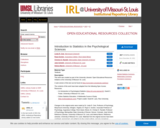
Psychology students often find statistics courses to be different from their other psychology classes. There are some distinct differences, especially involving study strategies for class success. The first difference is learning a new vocabulary—it is similar to learning a new language. Knowing the meaning of certain words will help as you are reading the material and working through the problems. Secondly, practice is critical for success; reading over the material is not enough. Statistics is a subject learned by doing, so make sure you work through any homework questions, chapter questions, and practice problems available. Lastly, we recommend that you ask questions and get help from your instructor when needed. Struggling with the course material can be frustrating, and frustration is your enemy. Often your instructor can get you back on track quickly.
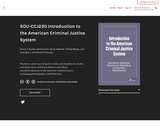
This introductory textbook is unique because it was a collaborative effort by all Criminology and Criminal Justice professors at Southern Oregon University (SOU) in Ashland, Oregon. This book can be used on a quarter or semester system, as well as cover topics that may get left out of some introductory texts such as controversial issues in the criminal justice system. Further, we made it as comprehensive as possible to cover core concepts and areas in the criminal justice system including theory, policing, courts, corrections, and the juvenile justice system. Additionally, we created examples that will help make difficult concepts or ideas more relatable. Every section provides an overview of key terms, critical thinking questions for course engagement, assignments, and other ancillaries such as multimedia links, images, activity ideas, and more.
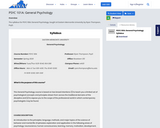
The syllabus for PSYC 101A: General Psychology, taught at Eastern Mennonite University by Ryan Thompson, PsyD.
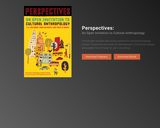
The first peer-reviewed open access textbook for cultural anthropology courses. Produced by the Society for Anthropology in Community Colleges and available free of charge for use in any setting.
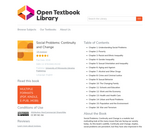
Social Problems: Continuity and Change by Steve Barkan is a realistic but motivating look at the many issues that are facing our society today. As this book’s subtitle, Continuity and Change, implies, social problems are persistent, but they have also improved in the past and can be improved in the present and future, provided that our nation has the wisdom and will to address them.
It is easy for students to read a social problems textbook and come away feeling frustrated by the enormity of the many social problems facing us today. Social Problems: Continuity and Change certainly does not minimize the persistence of social problems, but neither does it overlook the possibilities for change offered by social research and by the activities of everyday citizens working to make a difference. Readers of Steve Barkan’s book will find many examples of how social problems have been improved and of strategies that hold great potential for solving them today and in the future.
You will find several pedagogical features help to convey the “continuity and change” theme of this text and the service sociology vision in which it is grounded: Each chapter begins with a “Social Problems in the News” story related to the social problem discussed in that chapter. These stories provide an interesting starting point for the chapter’s discussion and show its relevance for real-life issues. Three types of boxes in each chapter provide examples of how social problems have been changed and can be changed.
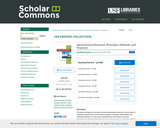
This book is designed to introduce doctoral and graduate students to the process of scientific research in the social sciences, business, education, public health, and related disciplines. This book is based on my lecture materials developed over a decade of teaching the doctoral-level class on Research Methods at the University of South Florida. The target audience for this book includes Ph.D. and graduate students, junior researchers, and professors teaching courses on research methods, although senior researchers can also use this book as a handy and compact reference.

Our book represents a unique opportunity for three generations of scholars to reflect upon and collectively consider their decades’ long research, and the meaning of that research to both the broader society and to students of contemporary politics. Nicholas Lovrich served as a graduate school mentor to Brent Steel, and Brent in turn mentored Christopher A. Simon as an undergraduate and guided him to study with Lovrich. Steel and Lovrich have collaborated on research for over 30 years, while Simon has frequently collaborated with Steel and Lovrich for nearly 20 years.
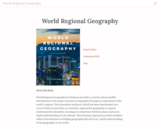
World Regional Geography by Finlayson provides a concise and accessible introduction to the major concepts in Geography through an exploration of the world’s regions. This innovative textbook, which has been downloaded over 15,000 times in more than 30 countries, approaches geography as experts understand the discipline, focusing on connections between places and an in-depth understanding of core themes. This thematic approach provides students with an introduction to thinking geographically and an in-depth understanding of the geography of our world.